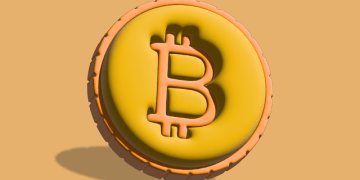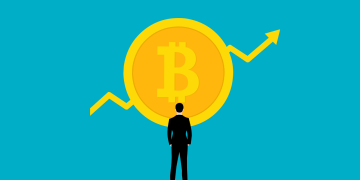Blockchain technology, originally designed for cryptocurrencies, is now taking on a transformative role across numerous industries, with healthcare among the most promising. The integration of blockchain technology into healthcare systems addresses many longstanding challenges related to data privacy, security, transparency, and accessibility. New blockchain platforms are paving the way for improved patient care, streamlined operations, and a reduction in systemic inefficiencies, thereby empowering patients, providers, and researchers alike. This article dives into the profound ways that blockchain is reshaping healthcare, exploring the technology’s impact on medical records, drug supply chains, clinical research, and patient empowerment.
Understanding Blockchain’s Role in Healthcare
Blockchain is a decentralized and distributed ledger that records transactions in a secure, tamper-resistant manner. By design, blockchain is secure and transparent, making it ideal for managing sensitive information like medical data. Healthcare, with its need for robust data protection and seamless data sharing, stands to benefit enormously from blockchain’s potential.
Some major challenges currently facing healthcare systems include data breaches, inefficient data exchange between providers, high administrative costs, and limited patient control over personal health data. Blockchain offers solutions to these issues by improving data security, enhancing data interoperability, reducing administrative burdens, and giving patients more ownership over their medical information. With the rise of new blockchain platforms tailored specifically for healthcare, the industry is on the brink of a revolutionary shift.
The Key Benefits of Blockchain in Healthcare
- Enhanced Data Security and Privacy
One of the primary benefits of blockchain in healthcare is its ability to enhance data security. Patient data is often fragmented across multiple providers and systems, creating vulnerabilities for hackers. Blockchain’s cryptographic principles can protect sensitive medical records and reduce the risk of data breaches. Additionally, because blockchain is decentralized, it prevents any single entity from having unilateral control over data.
Blockchain platforms use advanced encryption, and information is stored as “blocks” on a chain that is immutable and time-stamped, making it nearly impossible to alter without detection. This is essential in healthcare, where accurate and secure data handling can have life-altering consequences.
- Improved Interoperability Across Healthcare Systems
Data silos across hospitals, clinics, and labs create barriers to efficient information exchange. With blockchain, patient records can be shared seamlessly among authorized healthcare providers, creating a more cohesive healthcare experience. This interoperability ensures that a patient’s history, treatment plans, test results, and allergies are readily available to all relevant parties. Interoperable data leads to faster and more accurate diagnoses, reduced redundancies, and, ultimately, improved patient outcomes.
- Transparent Drug Supply Chains
Blockchain technology can address one of healthcare’s most pressing issues: counterfeit drugs. With blockchain, each step in the drug supply chain can be documented transparently, from manufacturing to the point of sale. This traceability ensures that only legitimate drugs reach patients, protecting them from potentially harmful counterfeits. Furthermore, blockchain reduces the chance of fraud, improves regulatory compliance, and fosters greater accountability among drug manufacturers and distributors.
- Reduced Administrative Costs and Billing Errors
Healthcare systems incur significant costs related to billing and administrative tasks. Blockchain can automate these processes through smart contracts—self-executing contracts that automatically trigger transactions based on predefined conditions. By automating transactions, billing disputes are minimized, claim processes are accelerated, and administrative costs are reduced. For instance, health insurance claims can be processed more swiftly and accurately, leading to fewer delays for both providers and patients.
- Enhanced Patient Empowerment and Data Ownership
In most healthcare systems today, patient data is owned and controlled by healthcare providers. Blockchain changes this paradigm by giving patients full ownership of their medical records. Patients can control who accesses their data, grant permissions, and even monetize their health information by participating in research initiatives. This transparency and control encourage patients to be more engaged in their healthcare journey.
Real-World Applications of Blockchain in Healthcare
1. Secure Electronic Health Records (EHRs)
The management of electronic health records (EHRs) is a significant blockchain use case in healthcare. Traditional EHR systems are plagued by siloed data, where a patient’s records at one hospital might not be accessible to another. Blockchain allows for a universal, interoperable system where EHRs are securely accessible to all authorized parties in real-time, regardless of the platform or location. Platforms like MedRec have pioneered blockchain-based EHR systems that provide patients with complete access and control over their health data.
2. Streamlined Clinical Trials and Research
Clinical trials involve massive amounts of data, and maintaining data integrity is critical. Blockchain’s transparent and immutable ledger can improve trust in clinical trials by preventing data tampering and fraud. All participants, processes, and findings are recorded on the blockchain, ensuring transparency. Moreover, researchers can access diverse patient datasets (with permissions) on blockchain platforms, accelerating research while respecting patient privacy.
3. Efficient Prescription Drug Verification and Authentication
Blockchain is invaluable in prescription drug verification, a necessity in combating counterfeit drugs that cost the industry billions annually. IBM and Pfizer are just two of the big names experimenting with blockchain-based platforms to ensure drug authenticity. Through blockchain, every movement of a drug—from the manufacturer to the patient—is recorded, creating a transparent history that can be accessed to verify authenticity.
4. Smart Contracts for Health Insurance Claims
Health insurance claims are often plagued by inefficiencies and errors. Blockchain enables insurers and providers to use smart contracts, automating claim approvals and processing. For example, if a patient undergoes a covered procedure, a blockchain-based smart contract could automatically validate and process the claim. Insurers such as Aetna and Anthem are already testing blockchain platforms that facilitate faster and more accurate claims processing.
5. Genomic Data Storage and Sharing
Genomic data is increasingly valuable for personalized medicine and medical research, but its storage and sharing are complex due to privacy concerns. Blockchain can secure and facilitate genomic data sharing, offering researchers access to critical data while keeping it encrypted and anonymous. Startups like Nebula Genomics and Shivom have developed blockchain platforms for the storage and exchange of genomic information, enabling advancements in genetics-based healthcare without compromising privacy.
Challenges and Considerations in Implementing Blockchain in Healthcare
While the potential for blockchain in healthcare is immense, there are challenges to be addressed.
- Scalability Concerns
Blockchain networks currently face scalability issues, especially when handling large volumes of data in real time. Healthcare systems generate massive data continuously, and most blockchains struggle with the high throughput demands. Future platforms may need to implement solutions like sharding or off-chain processing to manage data volume efficiently.
- Regulatory Compliance and Standardization
The regulatory landscape for blockchain in healthcare is still evolving. Compliance with healthcare regulations, such as the Health Insurance Portability and Accountability Act (HIPAA) in the U.S., is essential. Blockchain solutions must align with these standards to protect patient privacy and avoid legal issues. Moreover, without standardized protocols, the interoperability of blockchain systems across various institutions can be compromised.
- Data Privacy and Security
Although blockchain provides enhanced security, it is not immune to vulnerabilities. In cases where private information is stored on-chain, there may be risks if privacy measures are not adequately designed. Emerging blockchain platforms are focusing on hybrid solutions, where sensitive data remains off-chain while access controls and transaction records are stored on-chain.
- High Initial Costs and Skill Gaps
Setting up blockchain infrastructure requires substantial investment, and healthcare providers often face budget constraints. Additionally, the specialized skills required to implement and maintain blockchain systems are in high demand. Training healthcare IT staff and securing budget allocation are key steps in blockchain adoption.
The Future of Blockchain in Healthcare
The future of blockchain in healthcare looks promising, with emerging platforms and initiatives set to reshape the sector. As blockchain technology continues to evolve, here are some potential developments we may see in the coming years:
- Greater Patient Control Over Health Data
Blockchain can revolutionize patient relationships with healthcare providers, making healthcare more collaborative. As more platforms emerge, patients may be empowered to securely share their data with providers, researchers, and even pharmaceutical companies, allowing for a more personalized approach to care.
- Advanced Data Interoperability with AI Integration
Blockchain could serve as the foundation for an integrated data ecosystem where AI analyzes aggregated patient data to provide predictive healthcare solutions. AI combined with blockchain’s secure data sharing could create actionable insights for early diagnosis, treatment recommendations, and personalized care.
- A Transparent Global Healthcare Marketplace
Blockchain can pave the way for a transparent global healthcare marketplace where patients can compare and access services across borders. Additionally, international cooperation in drug development, clinical trials, and healthcare delivery may be streamlined through blockchain’s transparent and universally accessible data structure.
Conclusion: Transforming Healthcare Through Blockchain
New blockchain platforms are transforming healthcare by offering solutions to longstanding challenges related to data privacy, interoperability, and security. From secure electronic health records to transparent drug supply chains, blockchain technology holds the potential to make healthcare more efficient, patient-centric, and trustworthy. While challenges remain, particularly around scalability and regulation, the advancements in blockchain technology continue to address these issues, paving the way for a new era in healthcare.
As the industry embraces blockchain, both patients and providers will experience the profound benefits of a more connected and secure healthcare system. By shifting control over health data to patients, streamlining administrative processes, and ensuring drug authenticity, blockchain is setting a revolutionary new standard. The next decade promises exciting developments as blockchain platforms become more sophisticated and the healthcare sector increasingly recognizes blockchain as a crucial asset in providing high-quality care.









































